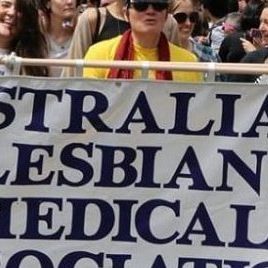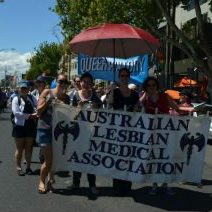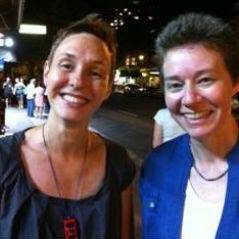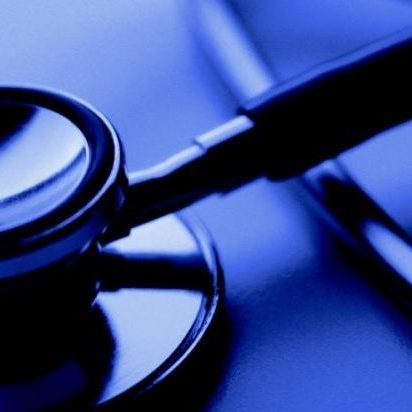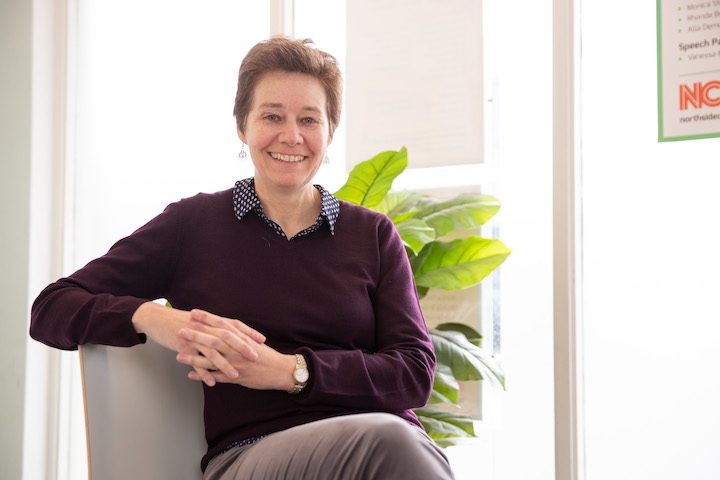
Four Fellows and the Royal Australian College of General Practitioners (RACGP) CEO will march with the Pride in Medicine float at the Mardi Gras Parade in Sydney on Saturday, 25th February.
The RACGP and 12 other medical colleges support the Pride in Medicine float for the first time. 2023 is a significant year for Pride in Australia – it is the 50th anniversary of the first Gay Pride Week, the 45th anniversary of the first Mardi Gras Parade and marks five years of Australian marriage equality.
The parade will be the biggest event of the Sydney WorldPride and Mardi Gras Festival, with 12,500 people marching for pride, self-expression, and equality under the festival’s theme Gather, Dream, Amplify.
RACGP members and staff marching with the float are GPs Dr Tom Dickson, Dr George Forgan-Smith, Dr Rebekah Hoffman and Associate Professor Ruth McNair, and RACGP CEO Paul Wappett.
RACGP President Dr Nicole Higgins said the RACGP’s support for Pride in Medicine reflects the College’s work to build a more inclusive culture in the organisation and profession.
“We are proud to support this float by the Pride in Medicine group, who do so much to provide a supportive community for medical practitioners,” she said.
“LGBTQIA+ people still experience prejudice and still experience worse health outcomes. There’s no excuse for that in 2023. Doctors take an oath against healthcare discrimination and for their peers’ support. We must end that health inequality and ensure all staff are welcome.
“We’re on a journey of change at the RACGP and have been working hard to build an inclusive culture, and supporting our LGBTQIA+ members, staff, and the communities in which they operate is an important part.”
Pride in Medicine is a group
of LGBTQIA+ doctors, medical students and allies that provide support and information sharing among members. Over 120 current members across Australia and Aotearoa, New Zealand, are in all stages of their medical careers.
Pride in Medicine vice-president and treasurer Associate Professor James Lee, an endocrine surgeon in Melbourne, said no LGBTQIA+ person, including doctors, should feel the need to hide or suppress that part of their identity. He said Pride in Medicine and its float at the Mardi Gras Parade aims to increase the visibility of LGBTQIA+ practitioners and better connect the LGBTQIA+ community to the medical professions.
“The WorldPride theme – Gather, Dream, Amplify – is about articulating the future we want for the LGBTQIA+ community and calling for support to realise it,” he said.
“We are excited to have the support of 13 medical colleges, including the RACGP, across both countries. We want junior doctors to feel empowered to choose their desired career path regardless of their sexual orientation or gender identity.
“Many doctors and medical students still feel unable to be true to their LGBTQIA+ identity in the healthcare setting, and so do many of our patients. For LGBTQIA+ patients, this can lead to poorer health outcomes and experiences. We want to help close this gap, so all doctors and medical students can bring their authentic selves to work, and all patients can seek timely care without fear of discrimination or judgement. Pride in Medicine supports current and future doctors to create that world by providing a community that can hear and understand their challenges, guide and advocate for them and their patients.”
Doctors and medical students can find more information about how to join the group and its online forums via its Instagram, @prideinmedicine, and its website: www.prideinmedicine.com.
Associate Professor McNair is a GP academic in inner Melbourne and Chairperson of the Pride Foundation Australia. She said the research clarifies that LGBTQIA+ people in Australia still face health inequalities linked to discrimination and social stigma.
“The LGBTQIA+ community faces substantial health inequalities,” she said.
“Mental health is a significant area – there is an exceptionally high suicide risk, worse for subgroups such as trans and non-binary people, those with disabilities, and young people. They also face higher cancer risk factors and possibly higher prevalence of some cancers, more harmful substance use and a more significant STI burden among subgroups such as men who have sex with men and transgender people. People with intersex variations are still experiencing unwanted surgeries, infertility and discrimination.
“The major contributors to these differences are a wide range of experiences of trauma, including family rejection, school bullying, workplace discrimination, family violence, abuse within society, and marginalisation. A big issue is the fear of discrimination in healthcare settings which reduces help-seeking, reduces preventative care and leads to the later presentation of illness. This is all preventable by educating ourselves as doctors and other health professionals.
“Things are improving slowly, but our LGBTQIA+ patients are rightly impatient for improvement and a fully inclusive healthcare system.”
Dr Forgan-Smith is a gay GP based in Melbourne intensely interested in male health, mental health and health promotion. He said LGBTQIA+ allyship among GPs is essential to the health of a community that still experiences discrimination.
“Many members of the LGBTQIA+ community may have had a poor engagement with the medical community, whether it be because of fear, previous episodes of discrimination or inability to find a doctor who can care for all their health needs,” he said.
“While I fully support doctors offering to be LGBTQIA+ friendly, being friendly is not enough. GPs who are not just interested in but trained and competent in LGBTQIA+ health hold a valued position within the community for the safety and care they provide to their vulnerable clients. When a person can be aware their space with a GP is safe and respected, we can feel safer disclosing all aspects of our lives.
“LGBTQIA+ ally GPs understand the importance of this and strive to ensure they offer a safe environment for their patients. Continued work on this connection helps each community member to have all their health goals encouraged and met with respect and dignity.”
Dr Hoffman is a Sydney GP, Deputy Chair of the RACGP’s NSW&ACT Faculty and a strong supporter of LGBTQIA+ health. She said institutional support for events like the Sydney WorldPride and Mardi Gras Festival matters and sends a message that achieving health equity for the LGBTQIA+ community should be a goal for healthcare providers in Australia.
“At our practice, we promote health for all people, and myself and several other doctors have a speciality interest in gender-affirming care,” she said.
“We have worked with the practice so that all staff are LGBTQIA+ allies and hold regular education events for all staff. Significantly, RACGP and other medical colleges are supporting Pride. One initiative I have seen the RACGP support recently is using pronouns for the team, leaders and support staff.
“Many people won’t think about their pronouns, but for gender-diverse people, being gendered correctly is incredibly important. Transgender youth who report having their pronouns respected by all or most of the people in their lives attempted suicide at half the rate of those who did not have their pronouns respected. When cisgender people, especially those in authority, take the initiative to share their pronouns, it reduces stigma. It signals that the RACGP is an ally.”

